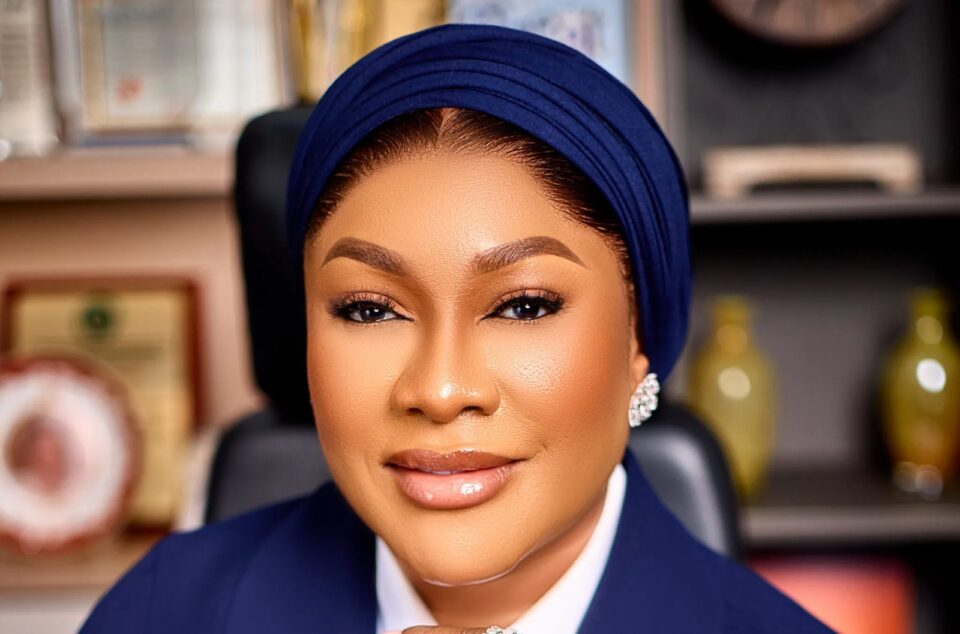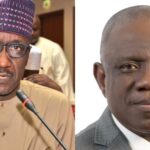By Ihesiulo Grace
Nigeria faces a defining moment where the credibility of its justice system and the moral compass of its society are being put to the test. The unfolding persecution of Aisha Achimugu—a distinguished businesswoman and philanthropist—highlights not only the dangers of politically motivated accusations but also the far-reaching consequences of selective justice in a nation striving for fairness.
Aisha Achimugu embodies resilience, innovation, and national development. As the visionary leader of Felak Concept Group, she has broken barriers in male-dominated industries, pioneering advancements in engineering, consultancy, and maritime sectors. Her leadership has driven job creation, policy reforms, and environmental sustainability, contributing meaningfully to Nigeria’s progress.
Beyond her corporate achievements, Aisha’s philanthropy has transformed lives across the country. She has funded educational scholarships, expanded healthcare access, and championed women’s empowerment. From supporting underprivileged children to mentoring young female leaders in business and governance, her contributions have been both impactful and enduring.
Yet, despite these remarkable contributions, she is now the target of an orchestrated smear campaign. Stripped of her right to due process, she has been publicly vilified before having a fair chance to defend herself. Her name was plastered on wanted posters while she was outside the country—a fact deliberately overlooked in a rush to brand her as a fugitive. Such actions raise serious concerns about the integrity of the justice system and the motives driving this unwarranted persecution.
This situation forces us to ask: Why is Aisha Achimugu being singled out while many others implicated in systemic corruption remain untouched? If she was once deemed worthy of national recognition, why is she now being treated with hostility?
Why did the EFCC hastily declare a prominent Nigerian with an OFR wanted within just two weeks of an invitation to Port Harcourt—while she was actively working to fulfill her financial obligations for her oil blocks, a critical revenue source for the Renewed Hope agenda of Mr. President? Is the EFCC aligning with the administration’s economic objectives, or is it actively undermining them?
Is this an attack on Aisha Achimugu because she is a widow? Has her status made her an easier target for unwarranted scrutiny and selective prosecution? These questions demand answers.
Aisha has long been a unifying figure, bridging political, ethnic, and religious divides while advocating for national progress. The awarding of her oil blocks was not an act of favoritism but a recognition of her competence and business acumen. Yet, rather than acknowledging her contributions, she now faces a campaign aimed at discrediting her hard-earned reputation.
Her commitment to national development is evident across multiple sectors:
Education: Providing scholarships and building infrastructure for schools.
Healthcare: Funding medical outreach programs for underserved communities.
Women Empowerment: Creating employment opportunities and mentoring future leaders.
Respected organizations such as the Nigerian Bar Association (NBA), Women in Business Initiative (WiB), and the African Leadership Forum (ALF) have voiced concerns over the blatant disregard for due process in Aisha’s case. They have called for transparency, fairness, and adherence to the rule of law.
Rather than honoring her contributions, she now faces public humiliation. But this case is bigger than Aisha Achimugu—it is about the integrity of Nigeria’s justice system and the future of every citizen striving for excellence.
Mr. President, this is not a victory against corruption; it is a misuse of power for political and personal vendettas. Selective justice erodes trust in governance. When a woman of Aisha’s stature is unfairly persecuted, it sends a chilling message to every hardworking Nigerian.
Aisha Achimugu has never evaded accountability. She stands ready to respond to any legitimate inquiry—but within a fair and transparent judicial process, not through media trials and politically motivated attacks.
Nigeria must stand for justice, not persecution. It must uphold truth, not deception. Aisha’s battle is not hers alone—it is a battle for the future of a nation that claims to value fairness and integrity. The time to act is now, before selective justice erodes the very foundation of our democracy.



